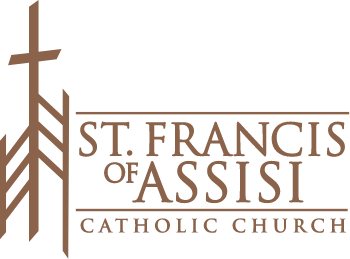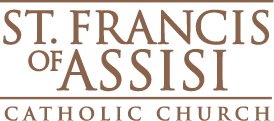With the presidential election cycle already in progress with the airing of the first Presidential Debate, Catholic American’s must bring to mind their Catholic morality as it applyies to some of the most pressing issues of our time. In doing so, one will be equipped to make a knowledgeable decision in the ballot booth. Please consider these excerpts from a USCCB article on immigration reform.
Catholic Social Teaching
The Catholic Catechism instructs the faithful that good government has two duties, both of which must be carried out and neither of which can be ignored. The first duty is to welcome the foreigner out of charity and respect for the human person. Persons have the right to immigrate and thus government must accommodate this right to the greatest extent possible, especially financially blessed nations: “The more prosperous nations are obliged, to the extent they are able, to welcome the foreigner in search of the security and the means of livelihood which he cannot find in his country of origin. Public authorities should see to it that the natural right is respected that places a guest under the protection of those who receive him.” (CCC 2241).
The second duty is to secure one’s border and enforce the law for the sake of the common good. Sovereign nations have the right to enforce their laws and all persons must respect the legitimate exercise of this right: “Political authorities, for the sake of the common good for which they are responsible may make the exercise of the right to immigrate subject to various juridical conditions, especially with regard to the immigrants’ duties toward their country of adoption. Immigrants are obliged to respect with gratitude the material and spiritual heritage of the country that receives them, to obey its laws and to assist in carrying civic burdens.” (CCC 2241).
In January 2003, the U.S. Catholic Bishops released a pastoral letter on migration entitled, “Strangers No Longer: Together on the Journey of Hope.” In their letter, the Bishops stressed that, “[w]hen persons cannot find employment in their country of origin to support themselves and their families, they have a right to find work elsewhere in order to survive. Sovereign nations should provide ways to accommodate this right.” No. 35. The Bishops made clear that the “[m]ore powerful economic nations…ave a stronger obligation to accommodate migration flows.” No. 36.
USCCB Position
The United States Conference of Catholic Bishops (USCCB) opposes “enforcement only” immigration policies and supports comprehensive immigration reform.
The U.S. Catholic Bishops outlined the elements of their proposal for comprehensive immigration reform. These include:
-
Earned Legalization: An earned legalization program would allow foreign nationals of good moral character who are living in the United States to apply to adjust their status to obtain lawful permanent residence…Such a program would help stabilize the workforce, promote family unity, and bring a large population “out of the shadows,” as members of their communities.
-
Future Worker Program: A worker program to permit foreign-born workers to enter the country safely and legally would help reduce illegal immigration and the loss of life in the American desert.
-
Family-based Immigration Reform: It currently takes years for family members to be reunited through the family-based legal immigration system. This leads to family breakdown and, in some cases, illegal immigration. Changes in family-based immigration should be made to increase the number of family visas available.
-
Restoration of Due Process Rights: Due process rights taken away by the 1996 Illegal Immigration Reform and Immigrant Responsibility Act (IIRIRA) should be restored.
-
Addressing Root Causes: Congress should examine the root causes of migration, such as under-development and poverty in sending countries, and seek long-term solutions. The antidote to the problem of illegal immigration is sustainable economic development in sending countries.
-
Enforcement: The U.S. Catholic Bishops accept the legitimate role of the U.S. government in intercepting unauthorized migrants who attempt to travel to the United States. The Bishops also believe that by increasing lawful means for migrants to enter, live, and work in the United States, law enforcement will be better able to focus upon those who truly threaten public safety.

